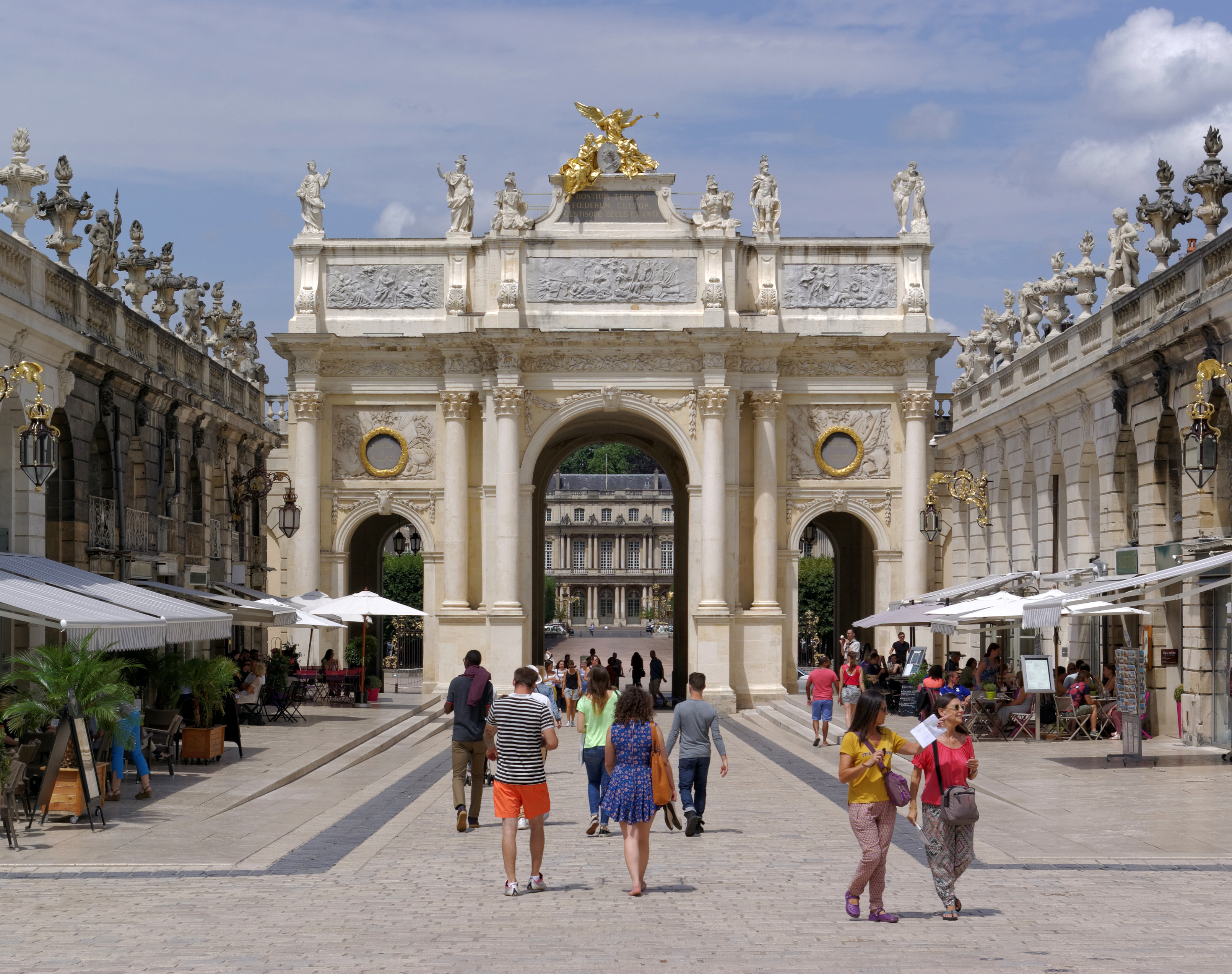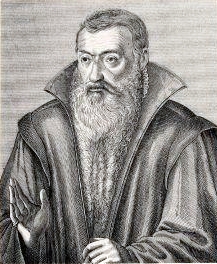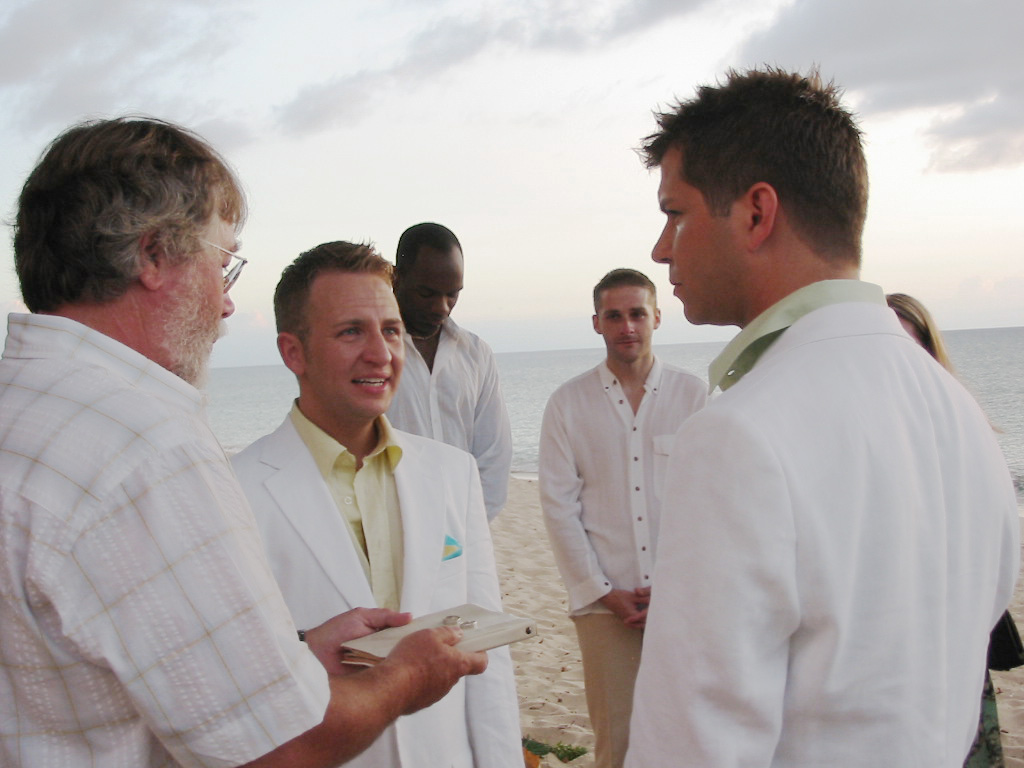|
Union Of Protestant Churches Of Alsace And Lorraine
The Union of Protestant Churches of Alsace and Lorraine (; ; ) was created in 2006 by bringing together the Protestant Church of Augsburg Confession of Alsace and Lorraine (EPCAAL) and the Protestant Reformed Church of Alsace and Lorraine (EPRAL). While the new body is not a united church, it provides a common decision-making structure and a single body of pastors. Overview The Union was established by virtue of a decree of 18 April 2006. It was celebrated on 7 May 2006 with a special service at St. Thomas Church in Strasbourg. It has the responsibility for organizing joint activities and strengthening relations between the two constitutive churches in Alsace and the department of Moselle in Lorraine. UEPAL totals some 250,000 church members, served by 250 pastors. About 80% belong to EPCAAL, with the remaining 20% belonging to EPRAL. The two churches keep their own structures and retain separate membership in international organizations. Both are members of the Protestant ... [...More Info...] [...Related Items...] OR: [Wikipedia] [Google] [Baidu] |
Protestant Church Of Augsburg Confession Of Alsace And Lorraine
The Protestant Church of the Augsburg Confession of Alsace and Lorraine (, EPCAAL; , ''Kirche A.B. von Elsass und Lothringen''; ) is a Lutheran church of public-law corporation status (établissement public du culte) in France. The ambit of the EPCAAL comprises congregations in Alsace and the Lorrain Moselle department. Creeds and memberships The EPCAAL adheres to the Apostles Creed, Nicene Creed, Luther's Small and Large Catechisms, the Formula of Concord, and the Tetrapolitan Confession. The EPCAAL has approximately 210,000 members (as of 2010) in 208 congregations. Congregations holding services in German language use the current German Protestant hymnal ' (EG) in a regional edition (Ausgabe Baden / Elsass-Lothringen) that includes traditional hymns from Alsace, Baden, and the Moselle. In 1961 the EPCAAL was a founding member of the Conference of Churches on the Rhine, which now functions as a regional group of the Community of Protestant Churches in Europe (CPCE). ... [...More Info...] [...Related Items...] OR: [Wikipedia] [Google] [Baidu] |
Protestant Reformed Church Of Alsace And Lorraine
The Protestant Reformed Church of Alsace and Lorraine ( (EPRAL); ; ) is a Calvinist denomination in Alsace and northeastern Lorraine (the ''Département'' of Moselle), France. As a church body, it enjoys the status as an ''établissement public du culte'' ( public establishment of cult). Creeds and memberships The EPRAL adheres to the Apostles Creed, Nicene Creed, Heidelberg Catechism and the Second Helvetic Confession. The EPRAL has approximately 33,000 members in 52 congregations served by 50 pastors. Congregations holding services in German and use the current German Protestant hymnal ' issued by the Protestant church bodies in Austria, France (Alsace-Moselle), Germany and Luxembourg (1993–1996), in a regional edition (Ausgabe Baden / Elsass-Lothringen) including traditional hymns from Alsace, Baden and Moselle. In 2006, the EPRAL formed with the EPCAAL the Union of Protestant Churches of Alsace and Lorraine. This is no united body, but it provides common decision m ... [...More Info...] [...Related Items...] OR: [Wikipedia] [Google] [Baidu] |
World Council Of Churches
The World Council of Churches (WCC) is a worldwide Christian inter-church organization founded in 1948 to work for the cause of ecumenism. Its full members today include the Assyrian Church of the East, most jurisdictions of the Eastern Orthodox Church (including the Ecumenical Patriarchate of Constantinople), the Oriental Orthodox Churches, the Union of Utrecht, the Lutheran World Federation, the Anglican Communion, the Mennonite churches, the World Methodist Council, the Baptist World Alliance, the World Communion of Reformed Churches, several Pentecostal churches, the Moravian Church, and the Malankara Mar Thoma Syrian Church. Notably, the Catholic Church is not a full member, although it sends delegates who have observer status to meetings. The WCC describes itself as "a worldwide fellowship of 352 global, regional and sub-regional, national and local churches seeking unity, a common witness and Christian service". It has no head office as such, but its administrative ce ... [...More Info...] [...Related Items...] OR: [Wikipedia] [Google] [Baidu] |
Strasbourg
Strasbourg ( , ; ; ) is the Prefectures in France, prefecture and largest city of the Grand Est Regions of France, region of Geography of France, eastern France, in the historic region of Alsace. It is the prefecture of the Bas-Rhin Departments of France, department and the Seat of the European Parliament in Strasbourg, official seat of the European Parliament. The city has about three hundred thousand inhabitants, and together Eurométropole de Strasbourg, Greater Strasbourg and the arrondissement of Strasbourg have over five hundred thousand. Strasbourg's functional area (France), metropolitan area had a population of 860,744 in 2020, making it the eighth-largest metro area in France and home to 14% of the Grand Est region's inhabitants. The transnational Eurodistrict Strasbourg-Ortenau Eurodistrict, Strasbourg-Ortenau had a population of roughly 1,000,000 in 2022. Strasbourg is one of the ''de facto'' four main capitals of the European Union (alongside Brussels, Luxembourg ... [...More Info...] [...Related Items...] OR: [Wikipedia] [Google] [Baidu] |
Alsace
Alsace (, ; ) is a cultural region and a territorial collectivity in the Grand Est administrative region of northeastern France, on the west bank of the upper Rhine, next to Germany and Switzerland. In January 2021, it had a population of 1,919,745. Alsatian culture is characterized by a blend of German and French influences. Until 1871, Alsace included the area now known as the Territoire de Belfort, which formed its southernmost part. From 1982 to 2016, Alsace was the smallest administrative in metropolitan France, consisting of the Bas-Rhin and Haut-Rhin Departments of France, departments. Territorial reform passed by the French Parliament in 2014 resulted in the merger of the Alsace administrative region with Champagne-Ardenne and Lorraine to form Grand Est. On 1 January 2021, the departments of Bas-Rhin and Haut-Rhin merged into the new European Collectivity of Alsace but remained part of the region Grand Est. Alsatian dialect, Alsatian is an Alemannic German, Alemannic ... [...More Info...] [...Related Items...] OR: [Wikipedia] [Google] [Baidu] |
Moselle (department)
Moselle () is the most populous department in Lorraine, in the northeast of France, and is named after the river Moselle, a tributary of the Rhine, which flows through the western part of the department. It had a population of 1,046,543 in 2019.Populations légales 2019: 57 Moselle INSEE Inhabitants of the department are known as ''Mosellans''. History 
 On 4 March 1790 Moselle became one ...
On 4 March 1790 Moselle became one ...
[...More Info...] [...Related Items...] OR: [Wikipedia] [Google] [Baidu] |
Lorraine (region)
Lorraine, also , ; ; Lorrain language, Lorrain: ''Louréne''; Lorraine Franconian: ''Lottringe''; ; ; is a cultural and historical region in Eastern France, now located in the Regions of France, administrative region of Grand Est. Its name stems from the medieval kingdom of Lotharingia (855–959 AD), which in turn was named after either Emperor Lothair I or King Lothair II. Lorraine, originally the southern or "upper" part of this kingdom, came to be ruled by the Holy Roman Empire as the Duchy of Lorraine before the Kingdom of France annexed it in 1766. From 1982 until January 2016, Lorraine was an administrative region of France. In 2016, under a reorganisation, it became part of the new region Grand Est. As a region in modern France, Lorraine consisted of the four Departments of France, departments Meurthe-et-Moselle, Meuse (department), Meuse, Moselle (department), Moselle and Vosges (department), Vosges (from a historical point of view the Haute-Marne department is also ... [...More Info...] [...Related Items...] OR: [Wikipedia] [Google] [Baidu] |
Protestant Federation Of France
The Protestant Federation of France (''Fédération protestante de France'') is a religious organisation created on 25 October 1905, which united the main Protestant Christian groupings in France. In 2023, the current president is Christian Krieger, who took over from previous president François Clavairoly in 2022. It is a member of the World Council of Churches. Federation The Protestant Federation of France may be further divided as follows: *Lutheran *Reformed *Evangelical *Pentecostal Exhaustive list (2019) of Churches or unions of Churches which are members of the PFF: * United Protestant Church of France (EPUF, '), 2013 union of the Reformed Church of France (ERF) and the Evangelical Lutheran Church in France (EELF) * Union of Protestant Churches of Alsace and Lorraine (UEPAL, '), 2006 union of the Protestant Church of Augsburg Confession of Alsace and Lorraine (EPCAAL) and the Protestant Reformed Church of Alsace and Lorraine (EPRAL) * National Union of Independent ... [...More Info...] [...Related Items...] OR: [Wikipedia] [Google] [Baidu] |
University Of Strasbourg
The University of Strasbourg (, Unistra) is a public research university located in Strasbourg, France, with over 52,000 students and 3,300 researchers. Founded in the 16th century by Johannes Sturm, it was a center of intellectual life during the Age of Enlightenment. The old university was split into three separate entities in the 1970s before merging back together in 2009. Today, the University of Strasbourg comprises 35 academic faculties, schools, and institutes, as well as 71 research laboratories spread across six campuses, including the historic site in the Neustadt. Throughout its existence, Unistra alumni, faculty, or researchers have included 18 Nobel laureates, two Fields Medalists and a wide range of notable individuals in their respective fields. Among them are Goethe, statesman Robert Schuman, historian Marc Bloch and several chemists such as Louis Pasteur. History The university emerged from the Jean Sturm Gymnasium, a gymnasium of Lutheran and humanist ins ... [...More Info...] [...Related Items...] OR: [Wikipedia] [Google] [Baidu] |
Jean-François Collange
Jean-François Collange (born Le Puy-en-Velay, 1944) is a French Lutheran pastor and professor of theology. He served as Lutheran pastor in Alsace and New Caledonia, before turning to exegetical studies, taking up a post of practical theology at the Faculty of Protestant Theology of the University of Strasbourg in 1981. He continued teaching at the faculty until 2000. In 2003 he was elected President of the Protestant Church of Augsburg Confession of Alsace and Lorraine. In 2006 he was elected the first president of the Union of Protestant Churches of Alsace and Lorraine (UEPAL). He was re-elected in 2009 and again in 2012, but announced that he would be standing down at the end of 2013. In an interview in 2013, he admitted that UEPAL was his own initiative. Bibliography * Epitre au Corinthiens - 1972 * The Epistle of Saint Paul to the Philippians, 1979 (translation of Epitre au Philippiens - 1973) * L'éthique du nouveau testament - 1980 * L'épître de Saint Paul à Phil� ... [...More Info...] [...Related Items...] OR: [Wikipedia] [Google] [Baidu] |
Blessing Of Same-sex Unions In Christian Churches
The blessing or wedding of same-sex marriages and same-sex unions is an issue about which leaders of Christian churches are in ongoing disagreement. Traditionally, Christianity teaches that sexual practices between men and sexual practices between women are sinful and that holy matrimony can only exist between two persons of different sexes. These disagreements are primarily centred on the interpretation of various scripture passages related to homosexuality, sacred tradition, and in some churches on varying understandings of homosexuality in terms of psychology, genetics and other scientific data. While numerous church bodies have widely varying practices and teachings, individual Christians of every major tradition are involved in practical (orthopraxy) discussions about how to respond to the issue. Theological views of those who support same-sex unions and/or marriages Those Christians and churches which support blessing of same-sex unions and/or marriages do so from sever ... [...More Info...] [...Related Items...] OR: [Wikipedia] [Google] [Baidu] |





